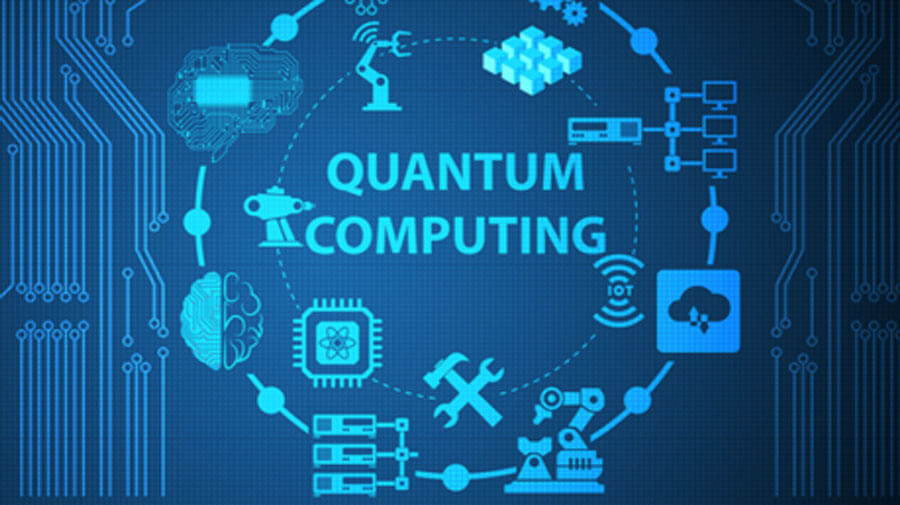
04 Jan Limitless Computing Power with Quantum Computers
A quantum computer is a device that leverages the principles of quantum mechanics to perform specific types of calculations much more efficiently than a classical computer. Conventional computing methods typically involve fundamental units of information known as “bits,” which exist in states of 0 or 1. Quantum computers, on the other hand, utilize quantum mechanics to generate a quantum bit called a qubit, capable of representing 0, 1, or both 0 and 1 simultaneously. This allows a quantum computer to process information exponentially faster, surpassing classical computers in terms of calculation speed.

The processing speed of quantum computers enables novel optimization and simulation tasks that were once considered impractical using conventional methods. This technology not only challenges the fundamentals of traditional computing but also promises a revolutionary leap forward in addressing previously deemed insurmountable complex problems. With this new technology, data scientists can now tackle challenging optimization problems with ease. Here are some use cases of quantum computing:
- Optimization of Aviation: Route and fuel optimizations of aircraft is a very well known optimization problem. With quantum computing, data scientists can create very sophisticated models that optimize flight operations using minimal resources.
- Autonomous Vehicles Routing: Quantum computers can be used to optimize routing and decision-making for autonomous vehicles. This includes dynamically adjusting routes based on real-time traffic conditions and ensuring safer and more efficient transportation.
- AI Model Training: Quantum computers can also train AI models very effectively. As a result, breakthroughs in quantum technology may be a necessity for the emergence of highly sophisticated AI, such as an Artificial General Intelligence.
- Supply Chain Optimization: Quantum computing can optimize supply chain operations by efficiently analyzing vast datasets related to inventory management, demand forecasting, and logistics. This can lead to more streamlined and cost-effective supply chain processes for businesses.
- Optimization in Manufacturing Processes: Quantum computing can optimize complex manufacturing processes, improving efficiency, reducing waste, and enhancing overall production quality. This is particularly relevant in industries requiring precision and high levels of customization.

- Simulations of Chemical Compounds: Simulations of chemical compounds can be simulated down to the particles that make up the compound, allowing a greater degree of efficency in the creation of new compounds. This will lead to the discovery of new materials and products that utilize these new materials.
- Personalized Medicine: Quantum computers can expedite the analysis of bio-data, enabling faster and more precise identification of genetic markers associated with diseases. This, in turn, facilitates the advancement of personalized medicine, tailoring treatments based on an individual’s unique genetic makeup.
- Cybersecurity: Cybersecurity systems will need to utilize quantum computing in the future, as malicious actors will start to utilize the boundless processing power granted by quantum technology. This is especially significant for certain cryptographic security systems where having virtually infinite computing power can easily break these systems. This means post-quantum era security systems will need to factor in quantum computing in their designs.
- Traffic Optimization: Quantum computing’s computational speed can be harnessed for optimizing traffic flow in cities. By processing real-time data from various sources, quantum algorithms can suggest dynamic traffic routing, reducing congestion and improving overall transportation efficiency.
- Fraud Detection: Quantum algorithms can enhance fraud detection in financial transactions by quickly analyzing vast datasets and identifying patterns indicative of fraudulent activities. This can lead to more robust security measures in the financial sector.
- Urban Planning: Quantum computing’s ability to process and analyze extensive datasets can aid urban planners in designing more efficient and sustainable cities. This includes optimizing transportation systems, energy grids, and public services.
- Environmental Impact Assessment: Quantum computing’s computational power can facilitate comprehensive environmental impact assessments for large-scale projects. This includes analyzing potential ecological consequences and developing strategies for minimizing environmental harm.

Currently, quantum computers are predominantly owned by corporations investing in research and development. Despite being in the experimental stage, breakthroughs in quantum computing are steadily accumulating, prompting projections that it may reach a critical point in the 2030s, paving the way for commercial applications. According to McKinsey, requirements to research this field creates a significant barrier to entry, demanding both technical expertise and substantial resources. Despite the transformative potential, quantum computers are not without their present limitations. Calculation errors, coupled with the sensitivity of quantum states to environmental conditions, have led experts to approach the immediate practical applications of quantum computing with caution. The promise of fault-tolerant quantum computing remains a focal point of ongoing research, with expectations that overcoming these hurdles will unlock a new realm of possibilities.
As quantum computing progresses towards maturity, its impact on the broader technological ecosystem will extend beyond traditional computational domains. Quantum-enhanced AI models, with the ability to process information at unprecedented speeds, may pave the way for breakthroughs in understanding complex systems and patterns. The intersection of quantum computing with fields such as materials science, medicine, and finance holds the promise of transformative discoveries and advancements.
